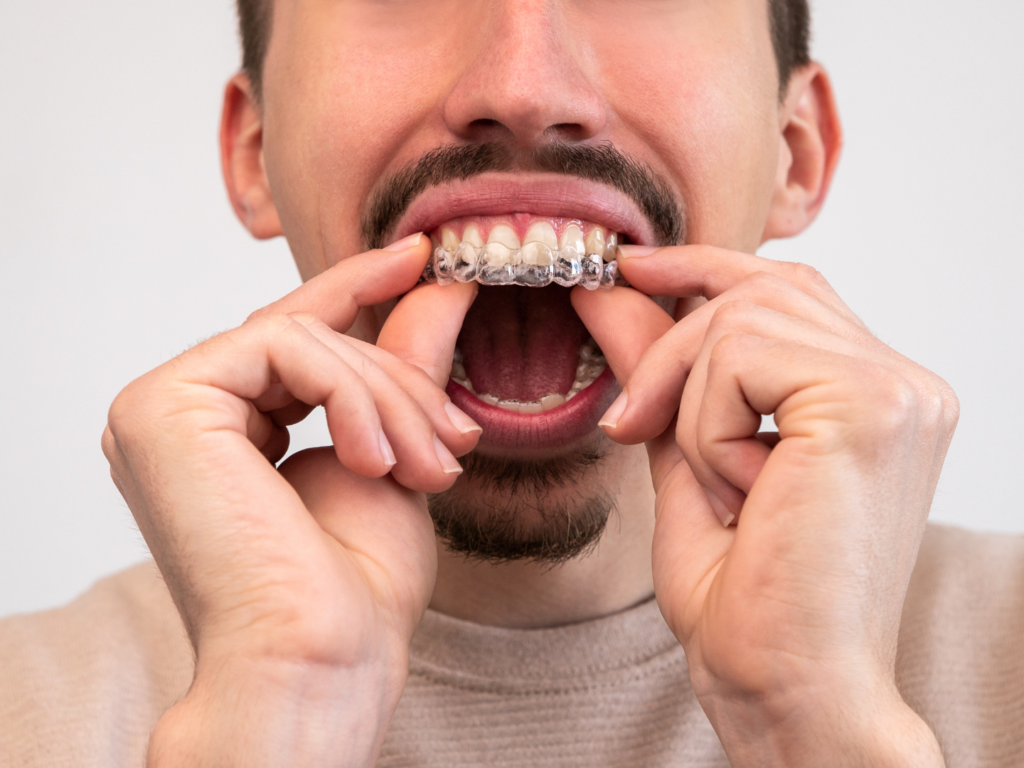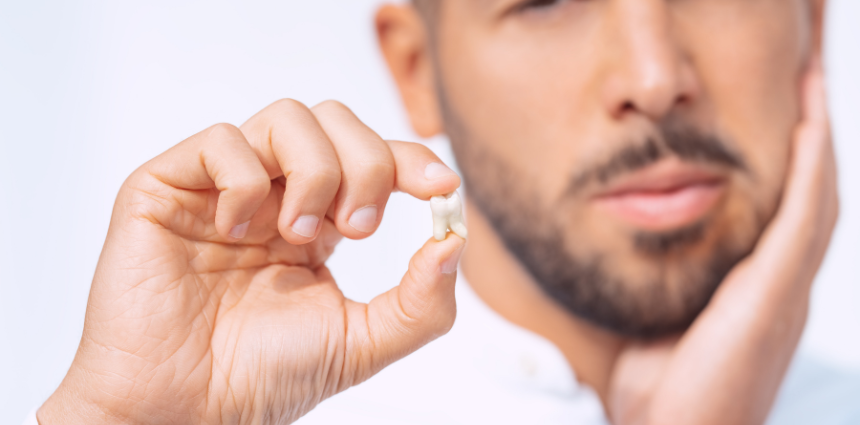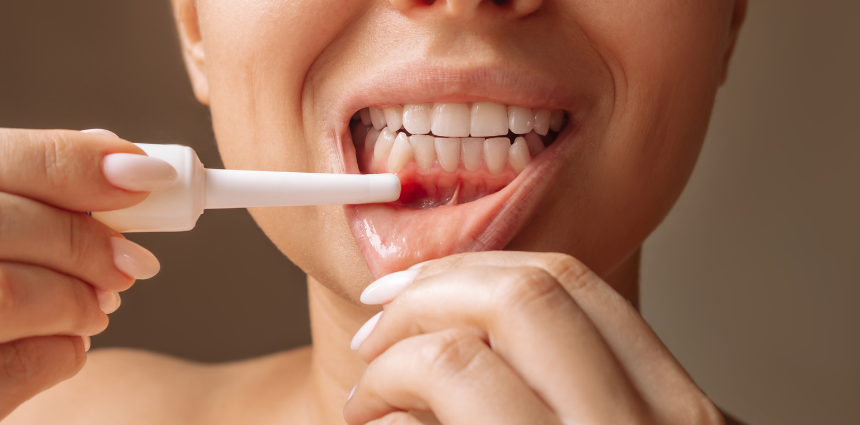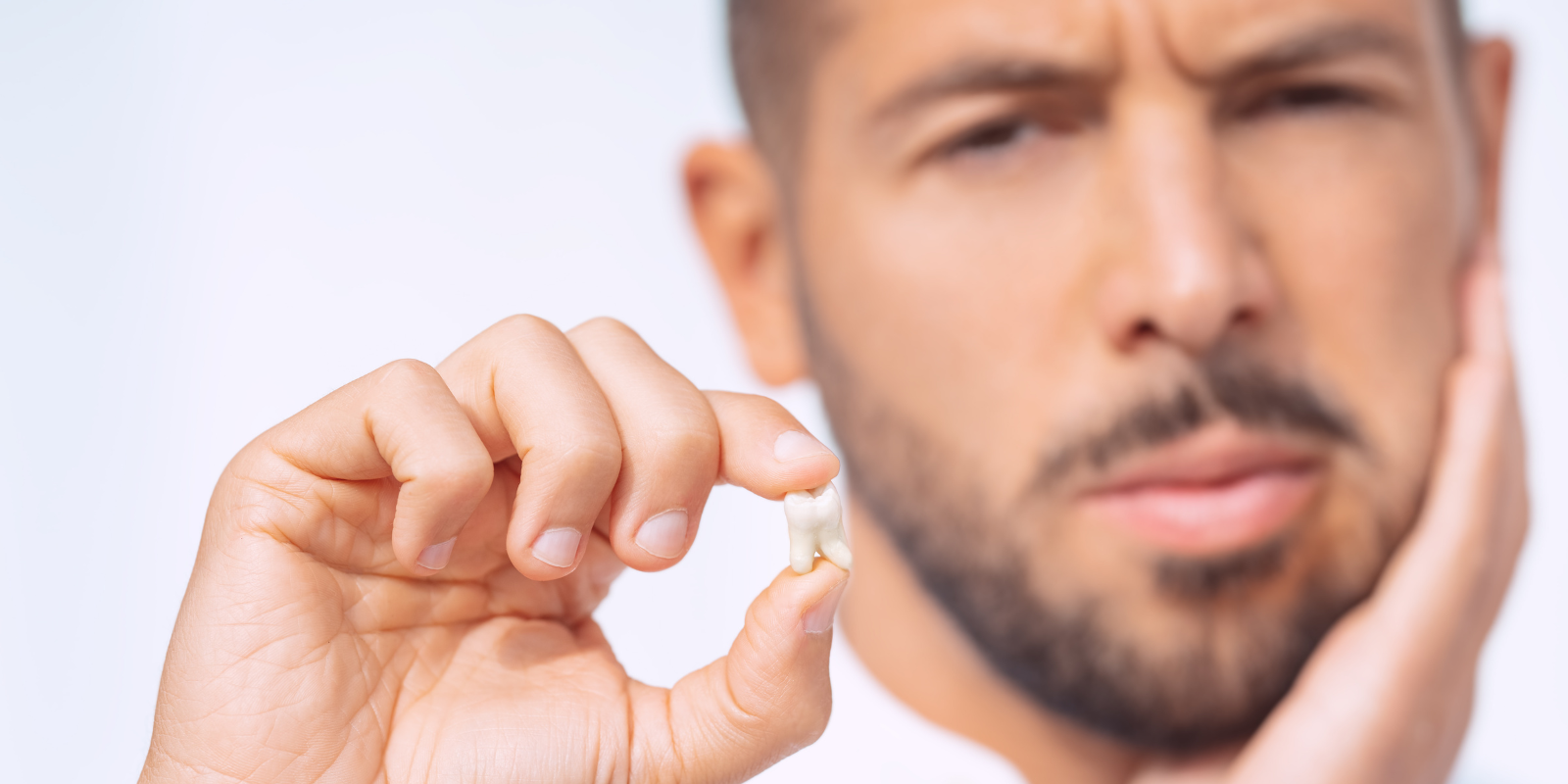Invisalign® treatment has revolutionized the field of orthodontics, offering a discreet and convenient way to achieve a beautiful smile. If you’ve recently completed your Invisalign journey, congratulations are in order! Your teeth have undergone a remarkable transformation, and now it’s essential to maintain that beautiful smile. This comprehensive guide delves into the post-Invisalign care routine, ensuring your newly aligned teeth stay healthy, vibrant, and picture-perfect.

The Marvel of Invisalign®
Before diving into the intricacies of post-treatment care, let’s briefly revisit the marvel of Invisalign. Unlike traditional braces, Invisalign aligners are transparent, removable, and highly effective at straightening teeth. These clear aligners offer comfort and discretion, making them popular among individuals seeking orthodontic treatment.
Understanding the Post-Invisalign Phase
As you complete your Invisalign treatment, it’s vital to comprehend the transitional period your teeth are undergoing. While they may appear perfectly aligned, they still have some flexibility. Your orthodontist will likely provide retainers to ensure your teeth maintain their new position.
The Role of Retainers
Retainers are an integral part of post-Invisalign care. They help in preserving your teeth’s alignment, preventing any regression. It’s crucial to wear your retainers as advised by your orthodontist, typically during the night or as instructed.
Pro Tip: Ensure you clean your retainers regularly to maintain good oral hygiene.
Maintaining Oral Hygiene
While Invisalign makes it easier to maintain oral hygiene than traditional braces, continuing your diligent dental care routine is essential. This includes:
- Brushing: Brush your teeth at least twice daily using fluoride and a soft-bristle toothbrush. Be thorough, and remember to brush your tongue as well.
- Flossing: Daily flossing removes food particles and plaque between teeth.
- Mouthwash: Rinse with an antimicrobial mouthwash to kill bacteria and freshen your breath.
Regular Dental Check-ups
After completing your Invisalign treatment, maintaining regular dental check-ups is imperative. Your dentist will monitor your progress, ensuring your teeth remain in their desired positions. These appointments also address any concerns or questions about your post-Invisalign care.
Diet and Nutrition
Your diet plays a significant role in maintaining your oral health. While you can enjoy a broader range of foods with Invisalign compared to braces, some precautions are necessary:
- Avoid Sugary Snacks: Sugary foods can lead to tooth decay. Limit your consumption of candies, soda, and other high-sugar treats.
- Be Cautious with Hard Foods: Although Invisalign aligners are removable, it’s still wise to be cautious with extremely hard or sticky foods, as they can damage your aligners.
Embracing the Confidence of a Perfect Smile
One of the most significant benefits of Invisalign is the boost in self-confidence that comes with a straight and beautiful smile. As you bask in your newfound confidence, remember to maintain your oral hygiene diligently, follow your orthodontist’s advice regarding retainers, and attend regular dental check-ups.
Conclusion
Your journey with Invisalign has resulted in a radiant smile you’ll want to cherish forever. By embracing a post-treatment routine that includes wearing retainers, maintaining excellent oral hygiene, and watching your diet, you can ensure your smile remains as stunning as ever. Schedule regular check-ups with Parkway Dental at (617) 325 4100 to keep your smile in top-notch condition. With the proper care, your Invisalign transformation will continue to shine brightly.
How long should I wear my retainers after completing Invisalign treatment?
A1: The duration for wearing retainers after Invisalign treatment can vary from person to person. Typically, your orthodontist will recommend wearing them full-time for a brief period, usually a few months, to ensure that your teeth stabilize in their new positions. After this initial phase, you’ll likely wear them primarily at night. However, following your orthodontist’s instructions is crucial, as they will tailor the retainer schedule to your unique needs.
Q2: Can I clean my Invisalign aligners with regular toothpaste and a toothbrush?
A2: It’s not recommended to clean your Invisalign aligners with regular toothpaste and a toothbrush, as these abrasive materials can scratch and damage the aligners, making them less transparent. Instead, use a gentle, clear, or mild antibacterial soap to clean them. You can also invest in specialized Invisalign cleaning products to keep your aligners clean and odour-free.
Q3: Will I need to wear my retainers for the rest of my life?
A3: While you won’t need to wear your retainers full-time indefinitely, it’s essential to continue wearing them as instructed by your orthodontist. Initially, it will be full-time; later, you’ll switch to nighttime wear. However, you’ll need to wear them consistently for an extended period, typically a few years, to ensure the stability of your teeth. After this period, you may wear them a few nights a week to maintain your results.
Q4: Can I chew gum or eat while wearing Invisalign aligners?
A4: It’s best to avoid eating or drinking (other than water) while wearing Invisalign aligners. Chewing gum is also not recommended; it can stick to the aligners and affect their transparency. Remove your aligners before eating or drinking anything other than water to prevent damage or staining. Remember to brush your teeth before reinserting the aligners to maintain good oral hygiene.
Q5: Are there any food restrictions with Invisalign treatment?
A5: Invisalign allows for more dietary flexibility than traditional braces, but some precautions are necessary. Avoid extremely hard or sticky foods that could damage or deform the aligners. While you can remove the aligners while eating, minimising sugary snacks and beverages is still wise to prevent tooth decay. A balanced diet mindful of your oral health will help you maintain your beautiful smile.
Q6: What should I do if I lose or damage my Invisalign aligners?
A6: Contact your orthodontist immediately if you lose or damage your Invisalign aligners. They will assess the situation and guide whether to move to the next set of aligners or if a replacement set is necessary. Avoid delaying this, as it could affect the progress of your treatment.
Q7: Can I stop wearing my retainers if my teeth look perfectly aligned?
A7: Even if your teeth appear perfectly aligned, they may still be adjusting to their new positions. To ensure your smile’s long-term stability, following your orthodontist’s instructions regarding retainer wear is crucial. Failing to do so could lead to teeth shifting back to their original positions, undoing all your progress with Invisalign.
Q8: How often should I visit the dentist after completing Invisalign treatment?
A8: After completing Invisalign treatment, you should visit your dentist regularly every six months. These check-ups are essential for monitoring your oral health, ensuring your teeth remain in their desired positions, and addressing any emerging issues promptly. Maintaining a consistent schedule of dental visits will help preserve your newly achieved smile.
Q9: Can I whiten my teeth after Invisalign treatment?
A9: Yes, you can whiten your teeth after Invisalign treatment. Invisalign aligners can double as teeth-whitening trays. However, it’s advisable to consult with your dentist before starting any teeth-whitening regimen. They can recommend the safest and most effective methods to achieve the level of whitening you desire without compromising your oral health.
Q10: Is it normal to experience minor discomfort while wearing retainers after Invisalign treatment?
A10: It’s normal to experience some minor discomfort or pressure when wearing retainers, especially during the initial phases. This discomfort is usually temporary and a sign that your teeth are adjusting to their new positions. If the pain persists or worsens, consult your orthodontist for adjustments or management guidance.



